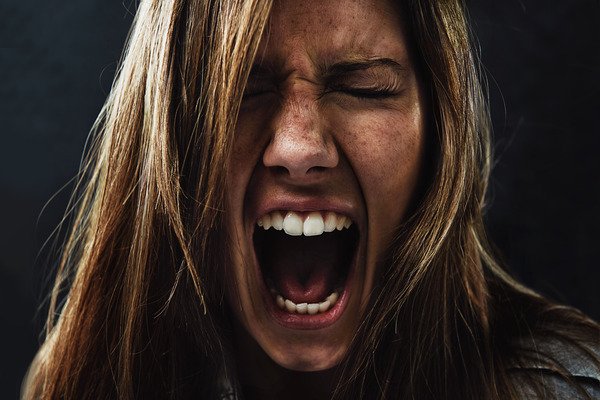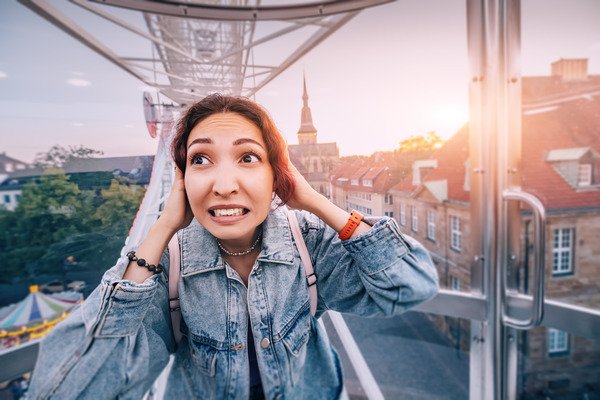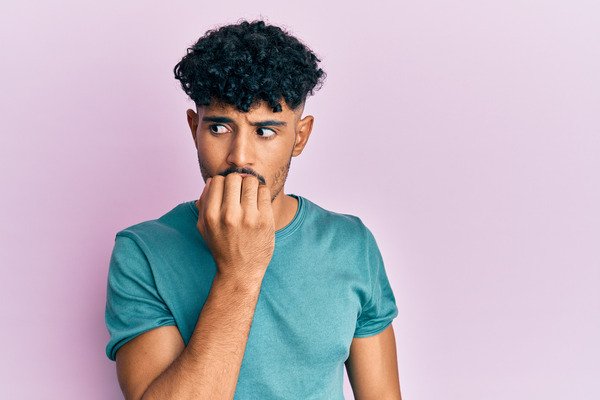What is claustrophobia and how does it affect those who suffer from it? How can I know if I am claustrophobic? Discover the symptoms, causes and how to overcome this phobia.
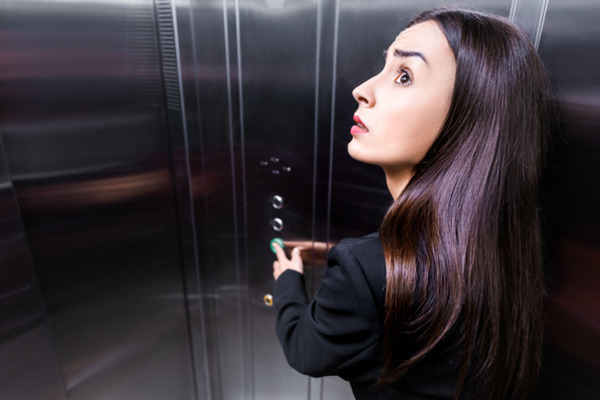
The claustrophobia It is, possibly, one of the most common phobias. It is an irrational fear linked to anxiety disorder and can limit the lives of those who suffer from it. This fear of closed spaces means that people who suffer from it cannot perform certain actions, thus limiting them in many aspects.
What is claustrophobia? Meaning
Those who suffer from this phobia feel fear and fear of closed spaces, which they avoid to reduce the chances of being trapped. That is, it is not about feeling fear of closed space itself, but to stay trapped in it. For this reason, they avoid going up in elevators and taking means of transport such as the subway, the plane and even the train. These are people who sit near the exit in bars and restaurants.
A claustrophobic person You can feel this interoceptive exposure in different places. One of the best known is the fear of elevators, since it is one of the most recurrent situations that those who suffer from this claustrophobic terror can stop.
Am I claustrophobic? Claustrophobia and its symptoms
A claustrophobic or a claustrophobic Those who suffer from this disorder feel restlessness and irrational fear every time they find themselves in a situation of confinement, which causes their body to react in a certain way. When someone suffers from claustrophobia, the main symptoms they may suffer are the following:
- Tingling in the fingers of the hands
- Sweating, especially in the hands
- Palpitations
- Shortness of breath
- Dizziness
- Panic attack
- Shortness of breath
The symptoms of this disorder that produces phobia of closed spaces is clear: nerves, tension, feeling of lack of air, cold sweat, accelerated heart rate, dizziness and desire to leave that place.
Patients who suffer from this specific phobia may suffer panic attacks associated with it when they are exposed to a situation that causes fear. Palpitations, sweating, rapid breathing, fear of losing control, pressure in the chest, nausea and intestinal discomfort are the most common manifestations that affect those who suffer a panic attack such as consequence of his claustrophobia Hence, to avoid these annoying symptoms, they avoid these types of spaces, which significantly affects their lives.
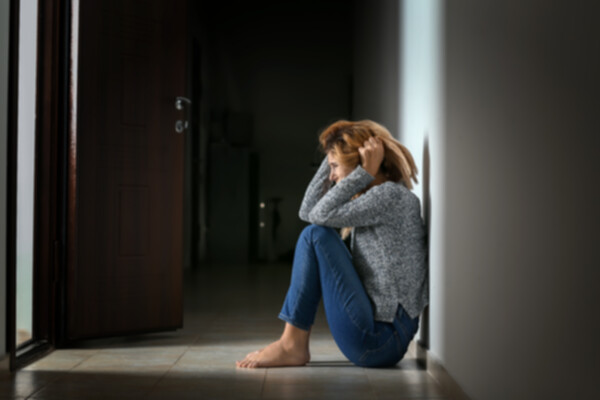
How does this phobia affect closed spaces?
The claustrophobia It can significantly alter and even limit our lives. Often, people who suffer from this fear of closed spaces are afraid of taking some means of transportation, such as the subway, the train or the plane (not so much because of the fear of flying but because of the fact of being confined). They don’t use the elevator. They avoid crowds and are afraid of traffic jams.
This disorder modifies your behaviors. One of the common patterns in people who suffer from claustrophobia It is looking for escape routes or exits when entering a public place such as a restaurant, a cinema or a nightclub. For this reason, these people usually sit in places close to windows or doors. In the most serious cases, these types of places are usually avoided.
In addition to disrupting your social life, claustrophobia It can also affect your work life. Some people find themselves unable to work in small or closed spaces, such as small offices, restaurant kitchens, etc. As if this were not enough, tests such as CT scans are usually avoided due to the feeling of confinement that their performance entails.
What is the cause of claustrophobia?
The causes of claustrophobia They can be several, from a traumatic experience in a closed space (being locked in an elevator or a subway car, which has stopped as a result of a breakdown) to the continuous reproduction in our mind of a scene that we have seen in a movie or read in a book.
There are cases in which a criminal act, such as a kidnapping or a robbery, is at the origin of this disorder. In this way, a person with a fear of closed spaces may have many reasons why they have developed claustrophobia. Therefore, be claustrophobic or claustrophobic It may have the following causes:
- Traumatic childhood event: People who have suffered a traumatic childhood event such as bullying, abuse, or being held against their will in a closed space may develop claustrophobia because of it.
- Other anxiety disorders: Research has shown that having other anxiety disorders increases the chances of developing claustrophobia.
Claustrophobia and its treatment
Claustrophobia can be cured. According to psychologists, there are different ways to approach phobia of closed spaces Among them, the most effective methods that we can find are the following.
- Cognitive-behavioral therapy: Like most phobias and anxiety problems, cognitive behavioral therapy has been shown to be effective in treating claustrophobia. This therapy combines the management of negative thoughts, the interpretation we make of them and the acceptance of emotions with exposure. The professionals specialized in claustrophobia They usually work with the patient so that they are exposed to situations that they fear and know how to act in each case. Through breathing and control techniques, we try to help the person who suffers from the phobia know how to deal with the symptoms, restructure their thoughts so that they are able to avoid anticipatory and obsessive thoughts and end up becoming desensitized.
- Meditation: Besides the cognitive behavioral therapy, other professionals also use meditation as complementary support for the treatment of this phobia. Meditation makes it possible to delve deeper into the mind and, therefore, into the possible origin of the problem.
- Medication: Finally, when the patient suffers a crisis or phobia is so serious, it may be advisable to mitigate adverse effects and discomfort with medication. It is a temporary measure that must always be complemented with therapy and that only has to be limited to specific times, since drugs do not solve the problem. Hence, it may be necessary, in certain cases, to begin by combining both treatments to gradually abandon, as the patient evolves, the medications and focus on the reinterpretation and restructuring of thoughts.
- Healthy eating and habits: Leading a healthy and balanced life, with an adequate diet, and practicing exercise help combat discomfort and mitigate the stress situations that are often associated with these phobias. In any case, it should always be the therapist who recommends what steps to follow.
- Interoceptive exposure: It consists, together with the help of a mental health professional, of intentionally and gradually generating feelings of panic, to discover through experience that these are harmless. In this way, people with claustrophobia can face, for example, their phobia of elevators gradually trying to access one of them.
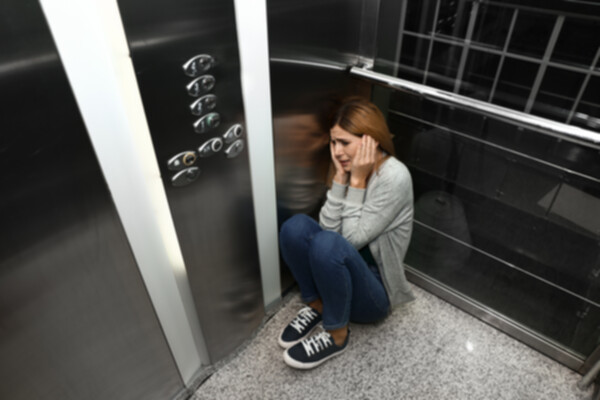
How to overcome claustrophobia?
When a claustrophobic feels the symptoms of fear of closed spaces, it is very difficult to try to exert control over the situation. So much so that individuals who feel a claustrophobic disorder They try to avoid the spaces that trigger it. Doing this not only limits your life but can also aggravate claustrophobia. Therefore, it is vital that a claustrophobic person tries to overcome these situations through these psychological tips.
- Control breathing: Breathing is one of the most effective ways to control nerves. In this way a way of knowing how to overcome claustrophobia It is precisely by practicing different breathing exercises.
- Concentration: Another method to leave aside the phobia of closed spaces It is precisely through paying attention to other thoughts. So-called mindfulness can help you control the interoceptive exposure felt in a claustrophobic situation.
- Keep the end in mind: The moment you feel claustrophobia and its main symptoms, the best thing you can do is think that this anxiety and fear will pass. In this way you try to calm the nervousness you feel, since you are visualizing its end.
- Rationalize it: As we have seen, claustrophobia is a fear of closed spaces more than irrational. For this precise reason, a good technique to stop being a fearful person is precisely to try to rationalize these phobias.
- Visualize the tranquility: When claustrophobia arises a good way to let go of these fears is precisely through the visualization of a quiet place where we do not feel those sensations.
Although these may be good techniques to alleviate claustrophobia, the reality is that in many cases these symptoms worsen. Therefore, it is necessary to go to a professional psychologist. Living with claustrophobia can be limiting in many ways.



